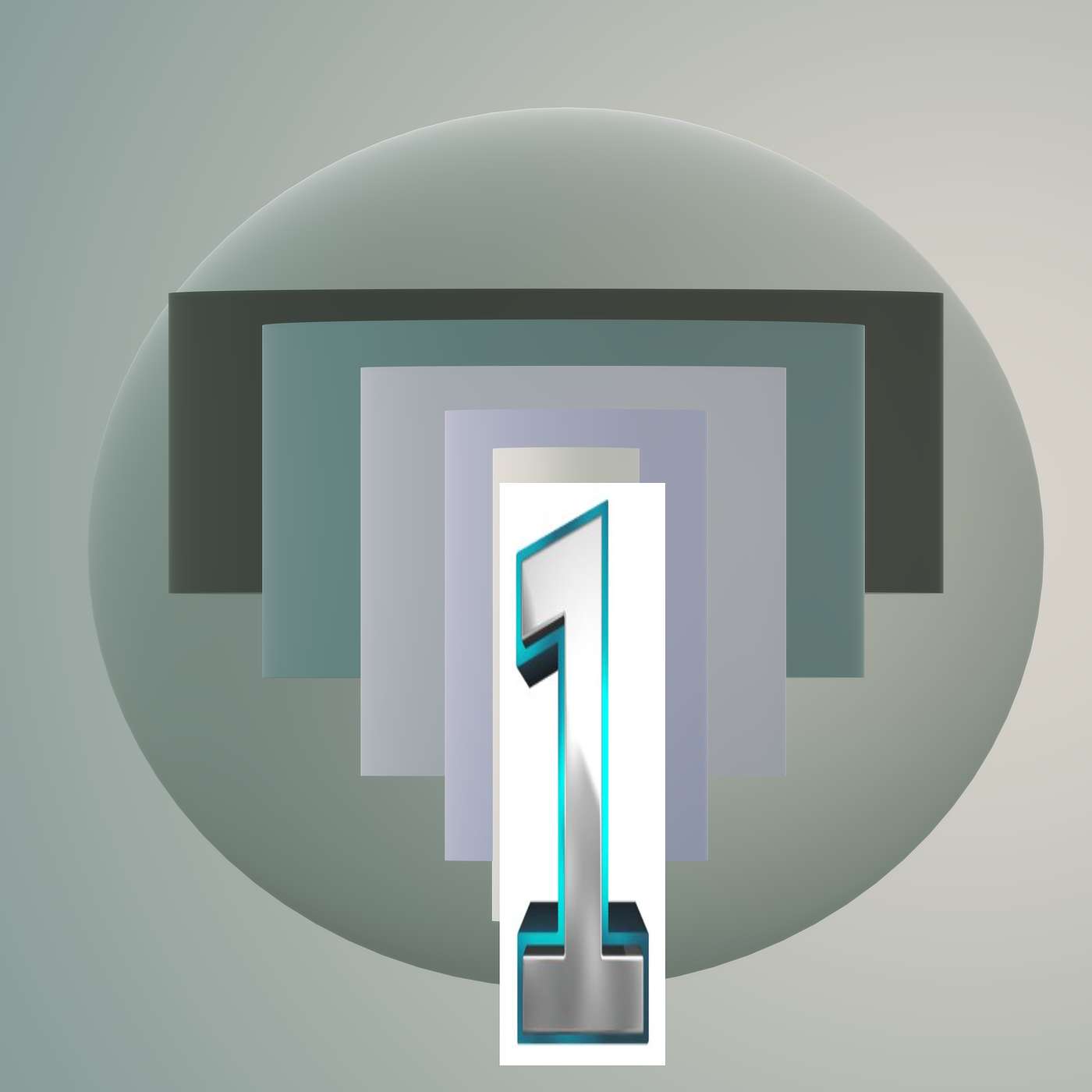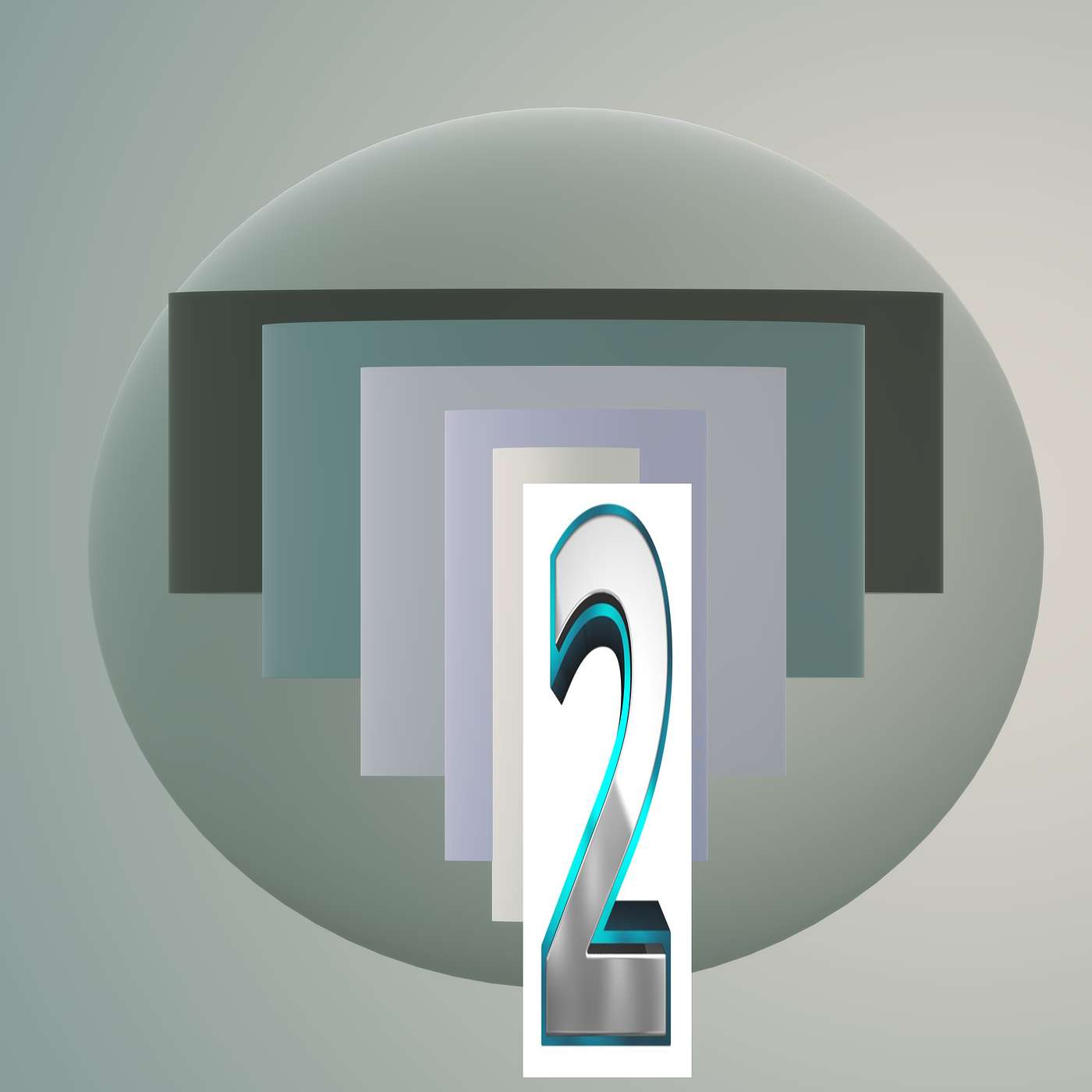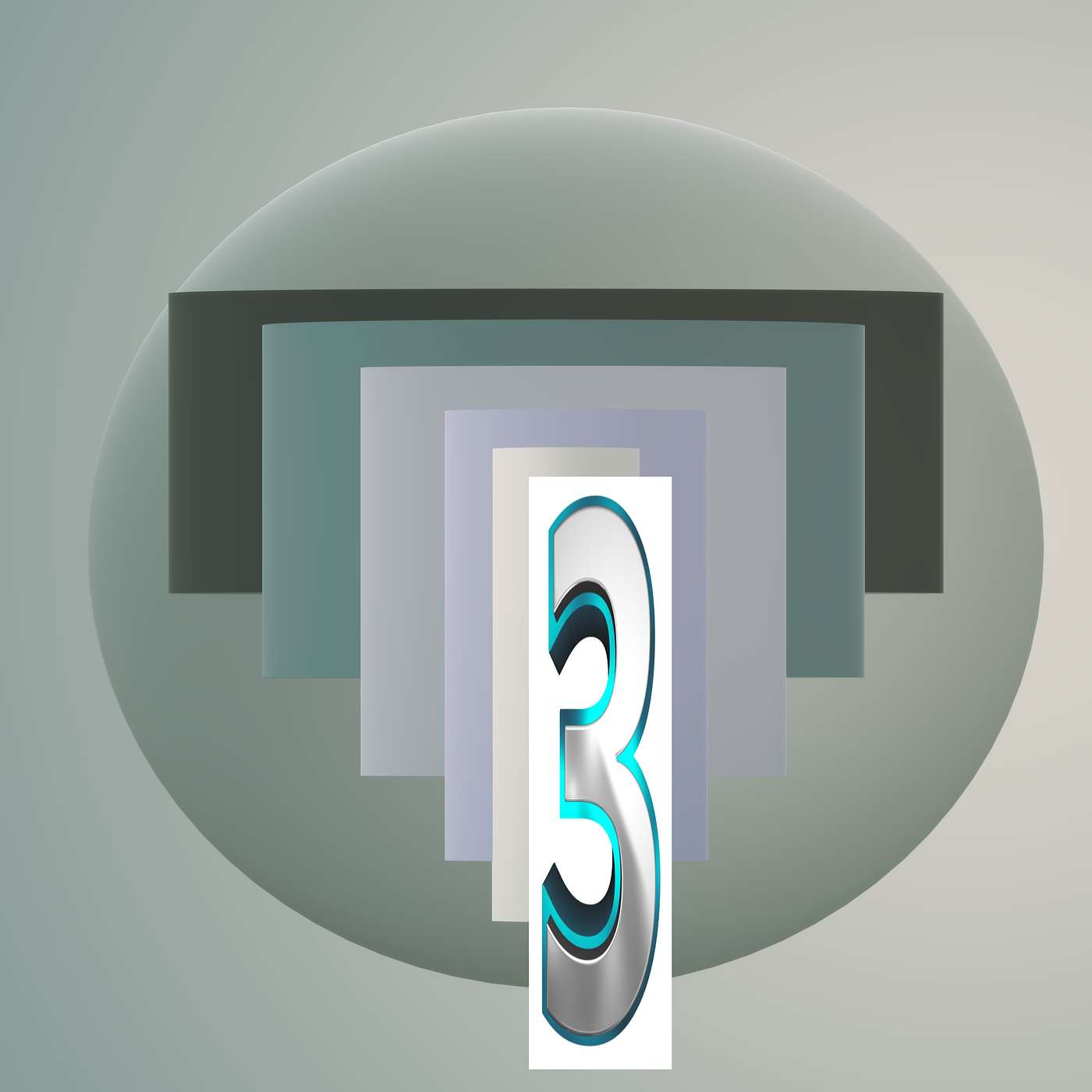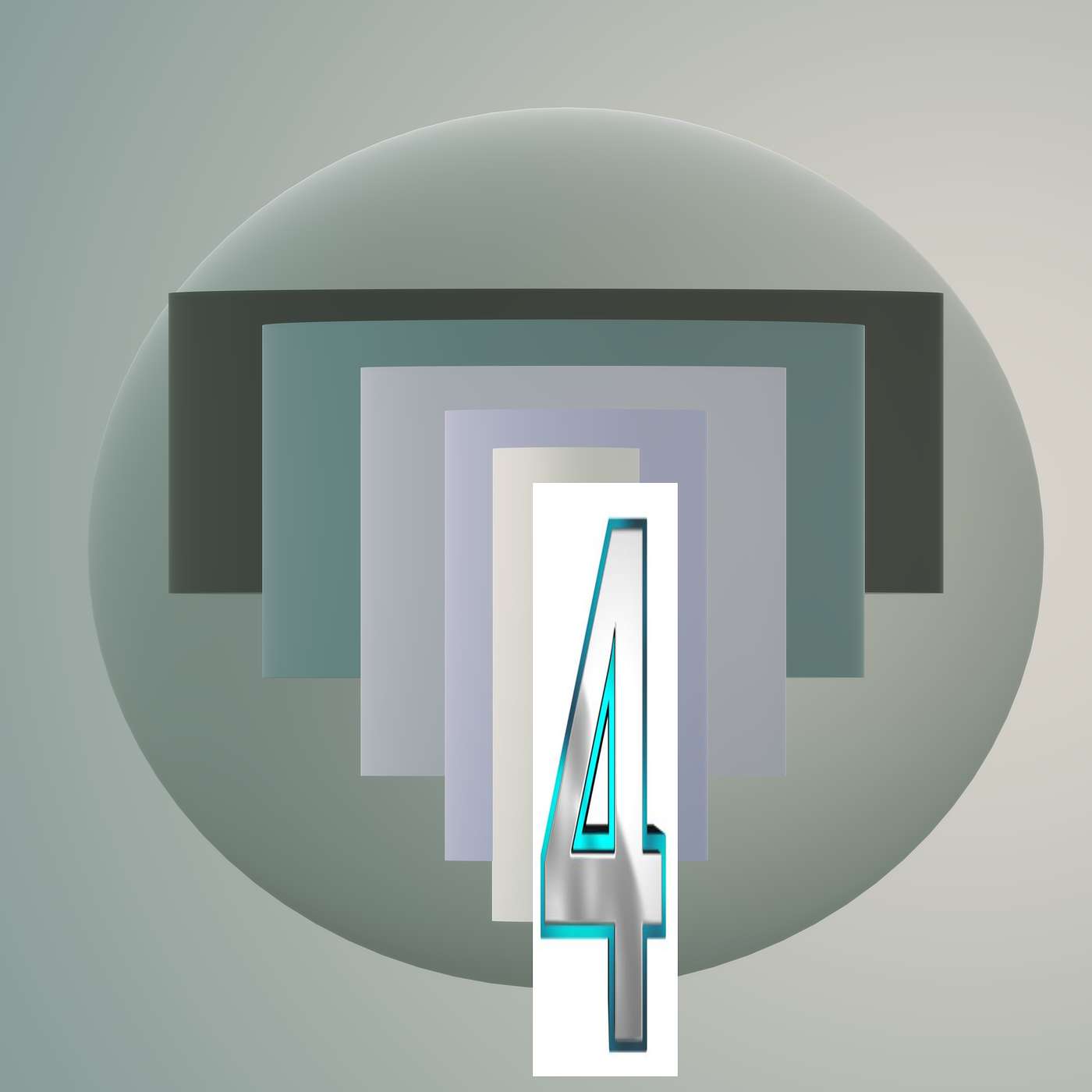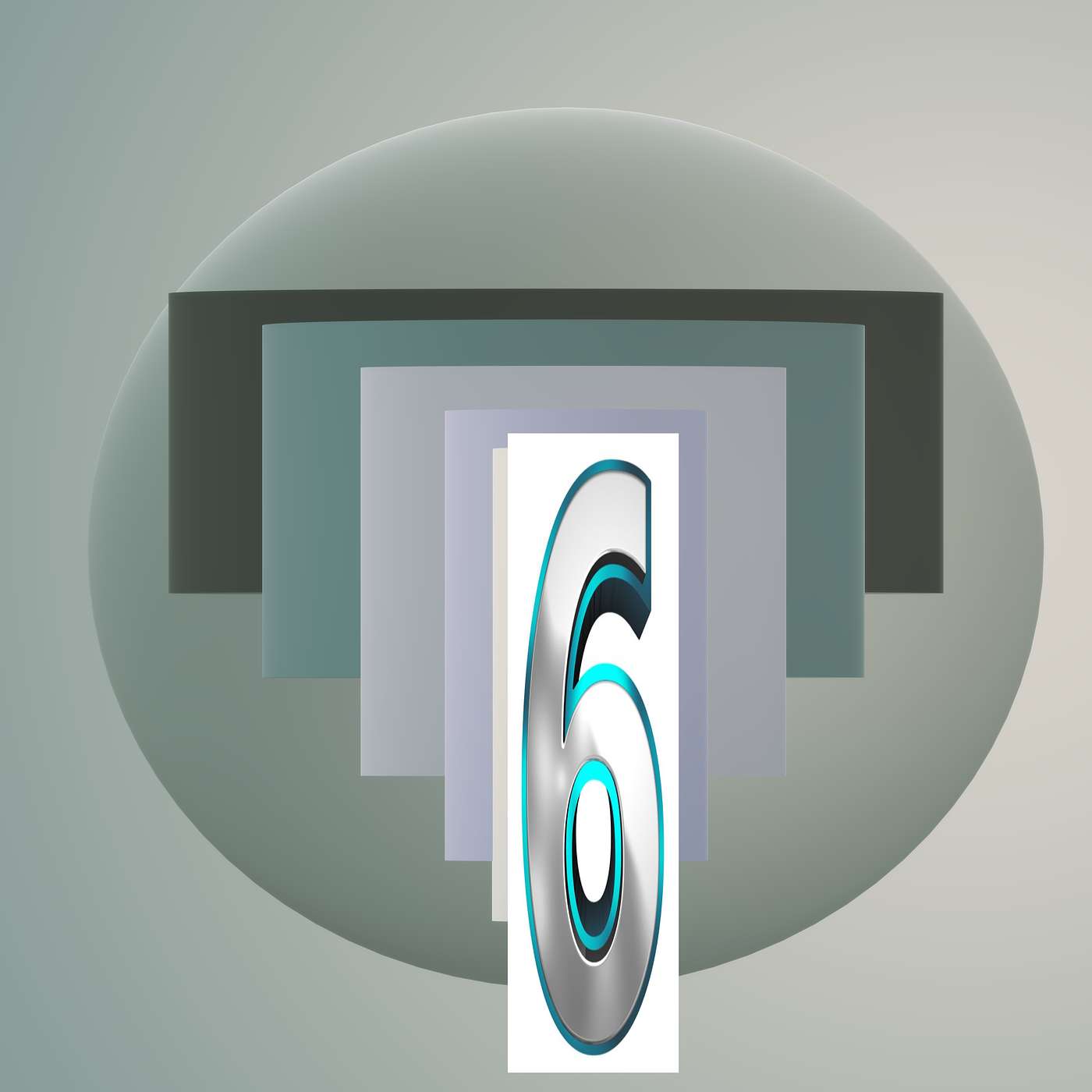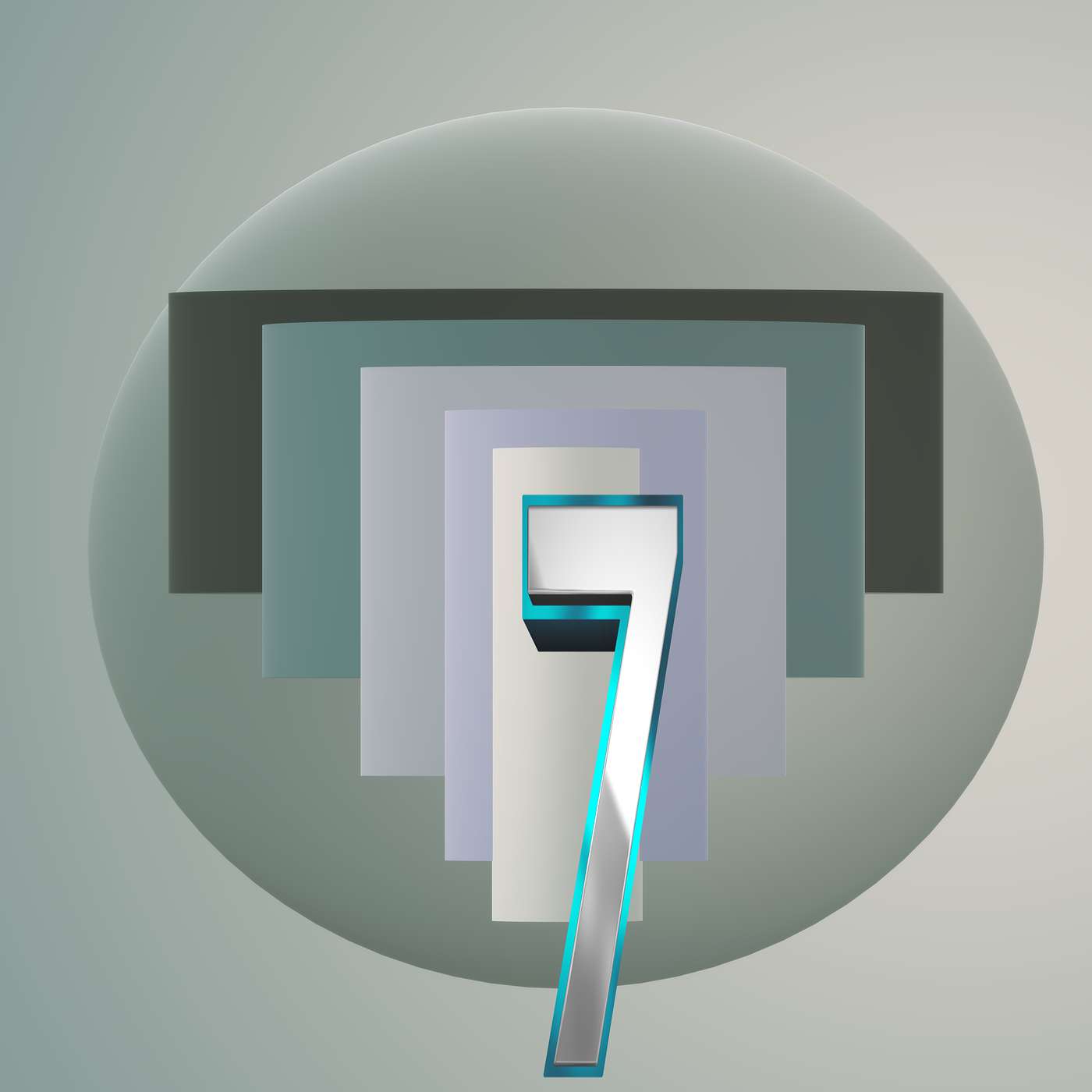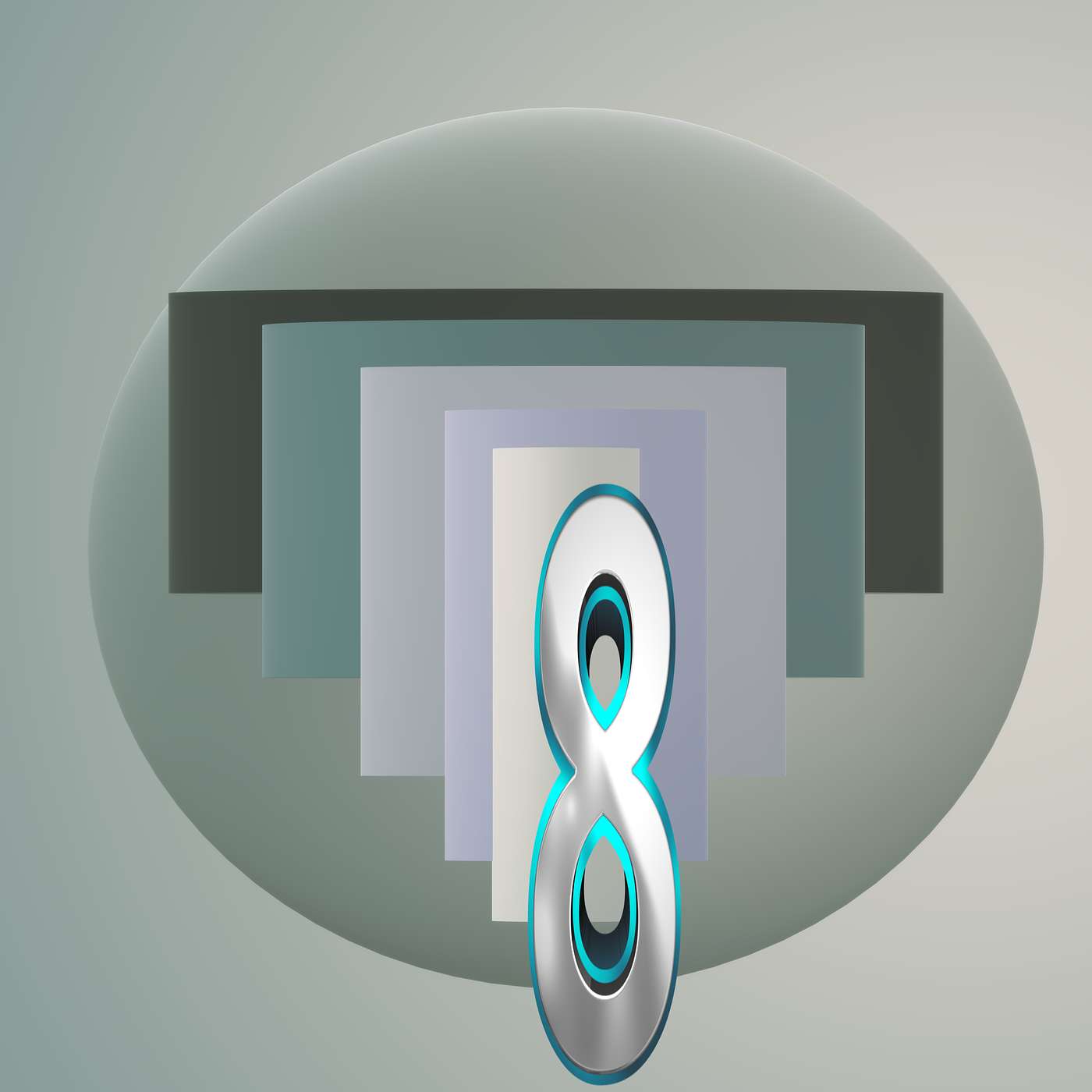Let Your Genius Emerge
Our Needs As Maslow Saw Them
In this episode Julia Bright introduces the six pillars of the Humanly Genius Project, which are overlapping and by integrating the knowledge they give us, we can become strong, fulfilled self-assured people.
These pillars are first and foremost all forms of Human Rights, then assertive and non-violent communication, interdisciplinary scientific approach, Big History Project, levels of needs and motivation, and Positive psychology. They will create the foundation for an all encompassing wisdom.
In this episode we pay tribute to Abraham Harold Maslow who provided not one but two pillars to our project. His creative mind will not just enrich our lives but will give us the wisdom to decide what is necessary and what is not in life.
Abraham Maslow’s one creative idea is the hierarchy of needs and motivation and the other is his lifetime work in a subfield he called Humanistic psychology that was later on the precursor of positive psychology.
You will hear about his life, about his struggles in life as well as his work achievements. He wasn't just a psychologist, he was a real person too!
Then Julia will give you details about the hierarchy of needs, all the stages and what they all mean for our motivation.
It is so important to be aware of these needs to be able to consciously transfer our lives when changes are inevitable, like when we go to university, get a new job, we become spouses, parents, our schedule and lifestyle changes or turns upside down.
We can also detect it easier when we or others need help when anxiety or depression sets in.
Sometimes we sacrifice our needs to get something that we desire. Other times we do that so we can give more to other people. Neither is healthy. Needs are such that are necessary to be taken care of otherwise we will not be complete. This is why Maslow's theory is so far reaching and practical in our everyday lives!
The podcast is recommended to non-native English speakers as well, as it is clearly spoken and easy to follow.
In this episode Julia Bright introduces the six pillars of the Humanly Genius Project, which are overlapping and by integrating the knowledge they give us, we can become strong, fulfilled self-assured people.
These pillars are first and foremost all forms of Human Rights, then assertive and non-violent communication, interdisciplinary scientific approach, Big History Project, levels of needs and motivation, and Positive psychology. They will create the foundation for an all encompassing wisdom.
In this episode we pay tribute to Abraham Harold Maslow who provided not one but two pillars to our project. His creative mind will not just enrich our lives but will give us the wisdom to decide what is necessary and what is not in life.
Abraham Maslow’s one creative idea is the hierarchy of needs and motivation and the other is his lifetime work in a subfield he called Humanistic psychology that was later on the precursor of positive psychology.
You will hear about his life, about his struggles in life as well as his work achievements. He wasn't just a psychologist, he was a real person too!
Then Julia will give you details about the hierarchy of needs, all the stages and what they all mean for our motivation.
It is so important to be aware of these needs to be able to consciously transfer our lives when changes are inevitable, like when we go to university, get a new job, we become spouses, parents, our schedule and lifestyle changes or turns upside down.
We can also detect it easier when we or others need help when anxiety or depression sets in.
Sometimes we sacrifice our needs to get something that we desire. Other times we do that so we can give more to other people. Neither is healthy. Needs are such that are necessary to be taken care of otherwise we will not be complete. This is why Maslow's theory is so far reaching and practical in our everyday lives!
The podcast is recommended to non-native English speakers as well, as it is clearly spoken and easy to follow.
Title: Our Needs As Maslow Saw Them
Chapter 1: Hello and Welcome back to Season 1 Episode 2 of ‘Let Your Genius Emerge’ podcast. The title of today’s episode is Our Needs as Maslow Saw Them. I am your host, Julia Bright.
Our podcast is the voice of the Humanly Genius Project which has a very bold aim: through this we want to demonstrate that humans have much more potential than what they present in real life and they themselves are not even aware of what they can become! On one hand since the dawn of time parents just want healthy children and they see their role as providers. Trade was learnt by guilds, then only fairly recently masses have been taught reading, writing and arithmetic as part of basic education. Anything extra to this aims at what is needed to fit into society and what is necessary to work. Maybe not even that for the twenty-first century.
On the other hand we want much more than that, especially from the second half of the 20th century. We are looking at ourselves as individuals who want to be accepted as such, we want to find out what makes us different from another person, we want to form our own opinions. However, that comes with a price, with responsibility and a lot of work. We need to know what, how and why. What I mean is we need good knowledge to form valid opinions of any kind. We need to know ourselves, our species, our environment, our world, our nature. It is a lot. Only then can we be self assured citizens of this global world.
This is what the Human Genius Project wants to help you with.
It sits on six pillars that are overlapping and by integrating the knowledge they give to us, we can become strong, fulfilled self-assured people.
These pillars are first and foremost all forms of Human Rights, and then assertive and non-violent communication, Interdisciplinary scientific approach, Big History Project, Levels of needs and motivation, and Positive psychology. It is perfectly ok if you are not familiar with some of these, that just means I will be able to tell you something new in the future.
Chapter 2: So after that start I would like to introduce to you an exceptional person, Abraham Harold Maslow, who with his genius visions provided not one but two pillars for our Humanly Genius Project. One pillar is the layers of needs and motivations, the other one is positive psychology. Abraham Maslow’s one creative idea is the hierarchy of needs and motivation and the other is his lifetime work in a subfield he called Humanistic psychology that was later on the precursor of positive psychology.
He was the 10th most quoted psychologist of the 20th century. He considered himself to be a psychological pioneer, for a very good reason, I think. In his active years his ideas contributed to build a new movement in psychology, stimulated thoughts and growth in the field. He built a framework that later allowed other psychologists to conduct more comprehensive studies. Although the definition of genius differs from expert to expert, and I am not an authority in philosophy, psychology or any of the fields where members feel entitled to make up definitions, I still would award Genius status to Abraham Maslow. My argument lies in this episode.
I am paying tribute to him and giving him credit for all his creativity that could spark the development of new ideas and more research based on his hard work. Maslow had his work criticized just as Darwin did for example. See, critics overlook the fact that it is easy to criticize when some idea has already been invented. It is easier to find faults than finding out new concepts in the first place. They also forget that in science nothing is set in stone, everything evolves through new studies, new research and new findings. The credit goes to the person who got the ball rolling and gave the ideas to start those studies, researches and then inspired those findings. Think about that for a moment.
Chapter 3: Before Maslow psychologists were mostly concerned about what was wrong with the mind, such as mental illnesses and behavioral issues. When or if they ever asked their patients how they felt on the scale of 1 to 10, the answer would have been minus 10 or minus 8. Their treatments aimed to raise the patient’s mood from that deep low level up to maybe zero or in the best case scenario to 2 out of 10. They were not in the business of well being. They treated sick patients and their illnesses, and not healthy people. They didn’t care for healthy people. They saw no reason to do so. Depressive disorders, anxiety disorder, phobias, sleep disorders, personality disorders and the like. I don’t know if they ever found cures, they treated those patients who mostly never got back to being motivated and living joyful lives anymore. That is why the stigma is still there and we are fighting it today when we are afraid to admit that we need help from a mental professional.
I had cancer, nobody had any problem accepting that, but later on, when I developed depression, even my mother was mocking me. In the west it is now acceptable to go and seek the help of a psychologist if you have money to cover the cost. But in many places in the world you are not completely there in your mind if you need a psychologist and there is no difference in people’s minds if you seek the help of a psychiatrist or a psychologist. They have no idea what the difference is.
It was Maslow who began to change this attitude in the 1940’s by starting to study how healthy people can grow and develop, not just studying babies and children but adults, as they don’t just want to be free of mental illnesses, which as I mentioned wouldn’t necessarily raise their level of mood, but they were looking for more in life. So he, and later on his followers started to study how we can become content, fulfilled, grow as individuals, and feel better inside, raising our mood to 6, 8 or nearly 10 out of 10. They wanted to know what happiness means for us, so they started to do research on it. It turned out, happiness is such a vague term, that the word itself says almost nothing. We need to find other words to clarify what we really mean by feeling good. Maslow called his work Humanistic psychology, which then was completed by Martin Seligman and his peers when they founded positive psychology in 1998.
Maslow was concerned about the study of self actualizing.
Another tidbit.
Many people refer to a saying “ if all you have is a hammer, everything looks like a nail“ but they do not realize that they are quoting Abraham Maslow, and referring to Maslow’s hammer here from his book The Psychology of Science, published in 1966.
Now, next I will tell you about Maslow’s life, but before I do that, I would like you to imagine a time when as a child someone told you a story, and you listened and couldn’t wait to find out what would happen to your hero. I would like you to listen to real people’s lives, events from history the same way. History is full of fascinating stories and people, heroes and antiheroes. The dates, places and names are just like global coordinates, or cards in library systems. They help you put things into the right places, but they are not the real content. Same with the life of any person, like Maslow. He was a real thinking, feeling, moving man, who struggled with everyday issues, just like any one of us. Please do not forget the human side of history, ever.
Chapter 4: Abraham Harold Maslow would be 113 years old now. He was born on April the 1st, 1908, in Brooklyn, New York.
His parents were first generation Jewish immigrants from Kiev. They fled Ukraine in the early 20th century. Imagine those times, when Ukraine was a territory of Russia, and Nicholas the Second was the ruler of this absolute monarchy. I want to put things into perspective here about Russia at that time. The literacy rate in urban areas was about 24%, in rural areas it was less than 20%. There was a famine in 1901 and 1902, among many, when almost half of the country was affected. Along with the uprisings against the tzar, antisemitism got so out of hand that numerous Jewish people were massacred in several cities, blaming them for the leftist uprisings. So Maslow’s parents left to escape tsarist persecutions too. They settled in Brooklyn, New York, in a multiethnic, working class neighborhood. They had seven children. Abraham Maslow was the oldest one. They were poor, but they valued education. Unfortunately the children could not escape acts of racism, and ethnic prejudice here either. Anti-semitic gangs would chase and throw rocks at them. This is why Maslow grew up in libraries and among books and he developed his love for reading and learning. He went to Boys High School, one of the top high schools in Brooklyn. As a young boy, he took up weight lifting and exercised often in hopes to be transformed into a more muscular tough looking guy but unfortunately for him, he was humble looking and could not achieve his ideal male figure. Later he went to graduate school at the University of Wisconsin to study psychology.
In 1928 he married his first cousin Bertha and they had two children together.
From 1937 to 1951 Maslow was on the faculty of Brooklyn College. His family life and his experiences influenced his psychological ideas. After WWII he began to question the way psychologists had come to their conclusions, although he did not completely disagree, he had his own ideas on how to understand the human mind. He started to call this discipline Humanistic Psychology. He was ineligible for military service because he was already a father of 2, but the horrors of war inspired a vision of peace in him leading to his groundbreaking psychological studies of self actualizing. He admired his mentors so much that this would be the basis of his life-long research about mental health and human potential. Then he extended it with the hierarchy of needs, metamotivation, self actualizing and peak experiences. As for work, he was a professor at Brandeis University from 1951 to 1969. His health was not great, he knew he didn’t have much left to live, but he still wanted to conduct studies about his motivational theories.
Maslow was jogging in Menlo Park California where suffered a severe heart attack. He died on June 8th, 1970. He was 62 years old.
My concern with creative thinkers is, how much they were not able to share with us. Same with Maslow. Could he have given us more? I am grateful for having him on this earth.
Chapter 5: So after all that I have told you so far, you can tell me if I was right to award him genius status. I hope I inspired you to look further into his life, his work, although I will talk about it in more detail in later episodes too.
Now, let’s talk about the hierarchy of needs, the way Maslow set it up. He created it for his book titled A theory of Human motivation which was published in 1943, when he was 35 years old. As Maslow first came up with it, it did not have the shape of a pyramid, and he never really used the term hierarchy either to explain his theory. He just suggested that there is a causality between lower and higher tier needs by virtue of prepotency. At the time he thought that people had to go through the levels one after another, and no levels could be skipped. His publisher wanted something visual in the book, so they formulated the pyramid and it permanently became known this way.
In 1943, it had 5 levels later on in the sixties he further developed the model to eight stages describing human needs as more fluid, also that people that reach higher level needs might fall back to lower levels, and some people who suffer from being poor and are less fortunate can still fulfill their purpose in life, like van Gogh, for example who suffered from mental illness, was poor but could fulfill his creative potential.
Maslow strongly believed, to my relief, that everybody can reach the fifth level, the self actualization. He believed in widespread education, and economic justice.
The first stage of his model is about physiological needs, or the biological requirements for human survival, that you have probably heard of in biology class: like air, food, drink, shelter, clothing, warmth, sex, sleep and excretion.
Without these the human body cannot function properly. So these needs are the most important and all other needs are secondary to these.
The second stage is about safety needs; protection from the elements, security, order, stability, freedom from fear, law.
The third stage according to Maslow is Love and belongingness: it is about our social needs, it involves all of our feelings and our needs to belong to someone, to be part of a group: family, friends, It’s about intimacy, trust, acceptance, receiving and giving, affiliating with others.
The fourth stage is about Esteem Needs: He broke it into two parts, one is about the self, esteem for oneself, dignity, achievement, mastery, dependence,
The other part is what others can give us: our desire for reputation or respect, status, prestige, however the second part is interestingly takes priority for children and adolescents.
The fifth stage is about Self actualization needs: realizing our potential self fulfillment, seeking personal growth and peak experiences. A desire “to become everything one is capable of becoming “
He expanded the fifth level further. From Self Actualization, he called this the Growth needs. These are the
Cognitive needs: knowledge and understanding, curiosity, exploration, need for meaning and predictability.
And there is Aesthetic needs: appreciation and search for beauty, balance, form and alike.
Self Actualization realizing personal potential, self fulfillment, seeking personal growth, and peak experiences
And finally, the Transcendence a person is motivated by values which transcends beyond the personal self you can think about mystical experiences, aesthetic experiences, service to others, the pursuit of science, sexual experience, religious faith and the like.
The hierarchy of needs didn’t just serve the purpose of getting to know people’s needs. He wanted to know what motivates people.
What he found was that for the first 4 tiers, when you fulfill your daily basic needs, you are safe and you belong and you gain some dignity. You are motivated by the lack of things. This is why Maslow also calls these needs deficiency needs. Simply saying, you are focusing on what can go wrong and you are trying to avoid it. Now it is very important to become aware of this.
Someone on welfare for example wants to avoid being hungry, being cold in winter, getting a heatstroke in the summer. Others are anxious about how they will pay the rent next month, will they be able to afford paying hydro and heat or they have to choose which bill to pay? I am sure during the pandemic many people can empathize with these issues along with the next one. What if you lose a loved one. When you have a break up at least the other one is still there but what about losing a life? A parent, a sibling, a partner? The third stage is love and belongingness, and we are very social. We can get way out of balance if we lose a relationship, an important person in our lives. Our emotions will take over and control our thoughts that will control our actions!
We also are willing to do a lot, almost anything to find our places in society, have our status established, to feel good about ourselves. We just want to avoid being devalued, we want to avoid doubt and anxiety!
Only from the fifth level the full growth mindset kicks in, when you are driven by the joy of discovery. You will find a meaning to life that is important to you!
Maslow also corrected his younger self, when he said that some levels can be present at the same time in a person. So you might be struggling right now to pay your bills, so you want to avoid this, but you might at the same time have a growth mindset and you can be open to new ideas, learning and can forget about the world around you over a great book or solving an interesting problem.
He has so much more to tell us about self actualization that I will need to continue this thread in the next episodes.
I was really pleased to read that Maslow thought in humanistic education children can be stronger and healthier and with more personal responsibility for personal lives they would actively change the society they live in. The basic framework of his theories was that only through a life devoted to personal responsibility and constant self-improvement can an individual ever be truly happy.
And now I will mention one criticism that he got for this theory of needs. Love and belonging is only at the third level, however people could not survive without each other, without cooperation. Babies and children could not survive without care. We are tribal species. Also the levels cannot be static.
Maslow himself said that later in his career that levels are overlapping and they are fluid.
Chapter 6: Now I need to explain to you even further why I feel the immense need to talk about it first in my podcast’s life? Beside that it is a pillar of the Humanly Genius Project.
I feel that knowing and being clear about our needs and separating our needs from our desires is absolutely essential to build a balanced life. It has tremendous applications when we look at our habits, routines, make lifestyle changes, like finding a new job that changes our schedule, going to university, becoming a spouse, a parent, taking care of a dependent. They have huge effects on us, and that is the time we lose sight of what is most important in our lives. We usually say: “First things’ first” but do we know what they are? Well, these are what Maslow started to tell us from the 1940’s.
The other issue is familiar for some of us during the pandemic, when jobs are lost, there are lock-downs, we can’t even see our friends or just with masks on. We get depressed, some of us get anxious, and develop clinically diagnosable depression, anxiety or other mental disorders. There are medications that psychiatrists can offer but we can do much more. Unfortunately the help of a psychologist, or psychotherapy costs money and health insurance is usually lost with a job, so what can be done?
CBT, Cognitive Behavioral Therapy has some applications that we can use and going back to the basics help. Just remember the triangle of your thought at one point, your emotions on the other and your actions on the third point. They are all connected. So when you feel a certain way, you will soon think that way and then act it out. Just like when you had watched a dark movie, then you developed dark thoughts, then came dark emotions finally you acted it out. Get it?
I did mention that I suffered from clinical depression. There were days when I felt I could not function and I did not have the will to live. So I developed my theory. I only have to worry about myself. Sleep, have some water, have a bite to eat. What an accomplishment! See? Back to level 1, Survival mode.
Did you bring your empathy along? How do you think a homeless person feels on the street? No security of his own place, no bed, no food for dinner, not even a plate that he owns?
I have a story about it.
We were on our holidays with my two older children, my oldest being 5 at the time my second son was 3. We spent 10 days in a beautiful town with a hot spring and a lot of natural baths there. We were walking in the evening, enjoying a nice ice cream when my oldest son spotted a homeless man standing by with glassy eyes, wearing all his clothes, including his winter coat, seemingly having no energy even to beg for anything anymore. My son stopped cold right there, and stared at the man. What is wrong with him? Is he sick? Is he sad? He was asking me, yet he didn’t want to approach the man. I told him that by the looks of this man, he had no place to go and all he had was what he was wearing. My son’s eyes were begging me to do something there, so we went into the nearby grocery store and bought some fruit and sandwiches and on the way back my son gave the package to the man. The poor soul still could not say a word. Just some tears started to drop from his eyes, and so did from my son’s eyes. Later on he remembered that he was just too feeling, too compassionate, too emotional to the point that he became vulnerable so consequently in his teens he wanted to toughen up. It saddened me greatly. But now he is past 30 and he embraces his compassion. I got him back.
This was an example of a poor adult who got stuck in the primary level of needs and sadly saw no way out of there. It is also an example that we live in a social environment and even children have the sense of compassion that society consists of individual people who need care and others who can provide it.
Chapter 7: And now we are approaching the end of this episode. As I promised I will leave you with a question so if you want you can join us for discussions at Let Your Genius Emerge Facebook group.
Today’s question: When you think about your own life, do you always take care of your basic needs first? Or you skip your needs just to get something you desire then later regret it? Or do you skip your needs so you can serve the needs of others’?
Check out our website HumanlyGenius.com, We are adding more content to it as we progress with the podcast.
Follow us on our Facebook page on Twitter Let Your Genius Emerge, on Instagram on humanlygenius.
If you’d like to sponsor us, you can do so on Patreon Let Your Genius Emerge.
We release a new episode every Tuesday by 9 am Eastern Standard Time, that is 3 PM Central European Standard Time. So from here on you can do the math depending on where you live on the globe.
In our next episode I will talk more about how the Human Genius Project put this structure into three dimensions, and how we can use it to know ourselves and other people better through this system. We can also build and expand on it so it will fully serve us. It is always up to us how we use the tools we are provided by great minds!
As the podcast part is over, next I am going to talk about assertive non-violent communication lessons , as a bit of self advertisement, if you are interested.
Don’t forget, the next episode is next Tuesday!
Chapter 9: Well, I am not just a podcaster, I am an ESL teacher as well. I used to teach different age groups at different levels, and all the skills. I enjoy teaching! Mostly however I enjoy talking about any subject, any situation, I find oral communication can be challenging but the most rewarding to students. Their listening skills are tested and as a follow up to the lessons they can do some writing and reading on the subjects we discussed.
But I have never been a traditional teacher. I have always wanted students to learn and explore themselves, learn the How and the Why, not just the What. You need to know the reason you want to learn, you need to acquire the skills of how to learn and then you will do the learning yourself. I can be your guide, your coach, your instructor. Lately I created a curriculum for intermediate to advanced speakers of English to learn the skills of assertive non-violent language. Yes, it requires a brand new set of skills that we need to memorize, practice, and get familiar with so it will become a habit. Then we can learn the words in any other language, that is just the application.
Real life conversations in any situation are not how textbooks model them to be.
People are moody, provocative and you might not be able to know what to say even in your own language. I bet you have been in those situations, I have been all my life. That is why I started to guard myself with words and phrases that will keep my integrity and align with my values instead of losing it and regretting every word I say and everything I do in those situations.
Through assertive non-violent communication you can clearly state your needs without offending anybody and at the same time you learn to hear them out, what their needs are, so you can come up with a healthy compromise. You don’t need to lose but neither does the other person.
My guided conversations are exploring different life situations.
So if you are interested, leave me a message. The first hour of consultation is free of charge through Zoom or any kind of video call. So again, get in touch with me through HumanlyGenius.com, or send me an email LetYourGeniusEmerge@gmail.com or drop me a message at
Let Your Genius Emerge on Facebook, or Twitter. I hope to talk to you soon. Goodbye!
